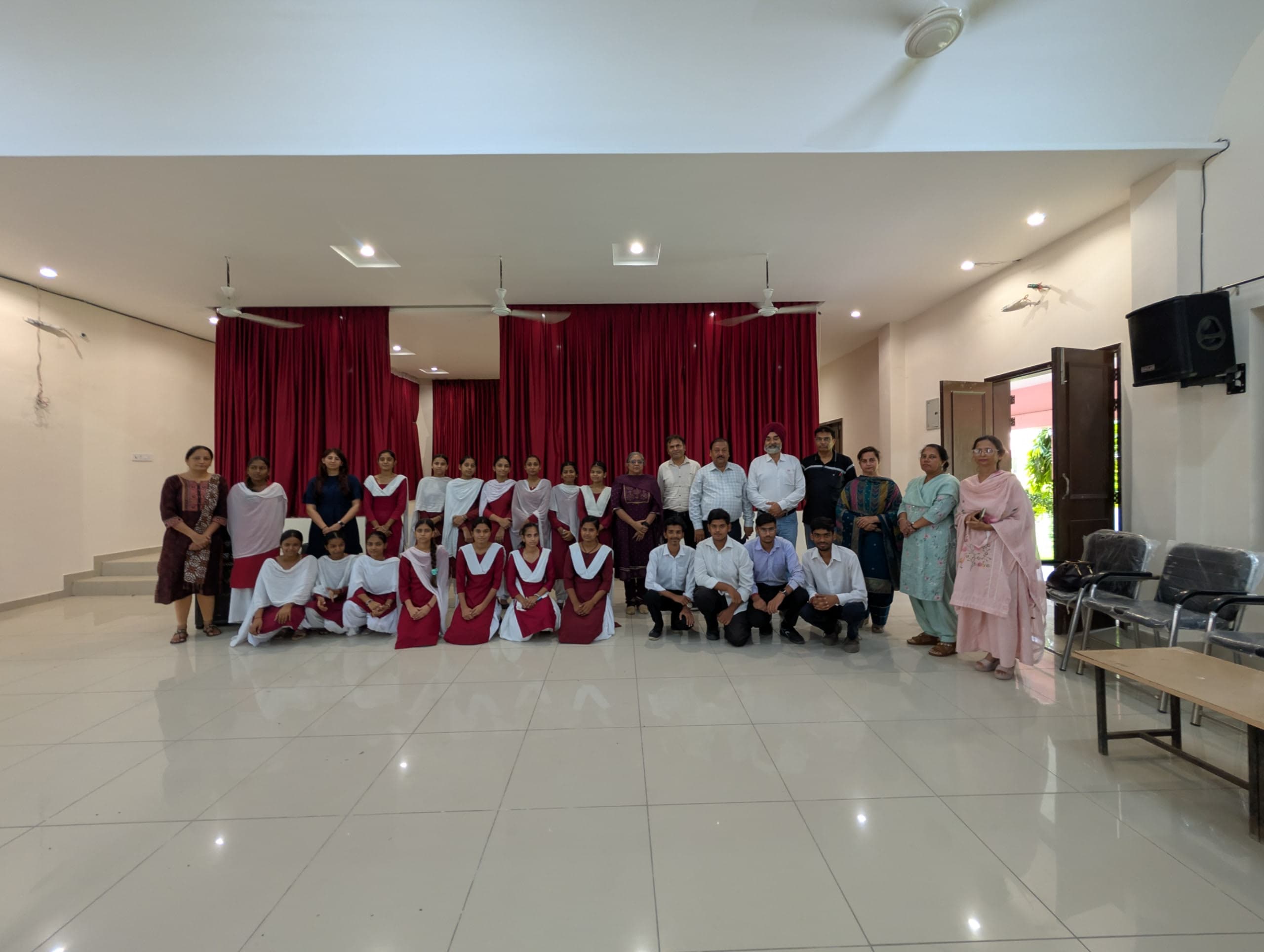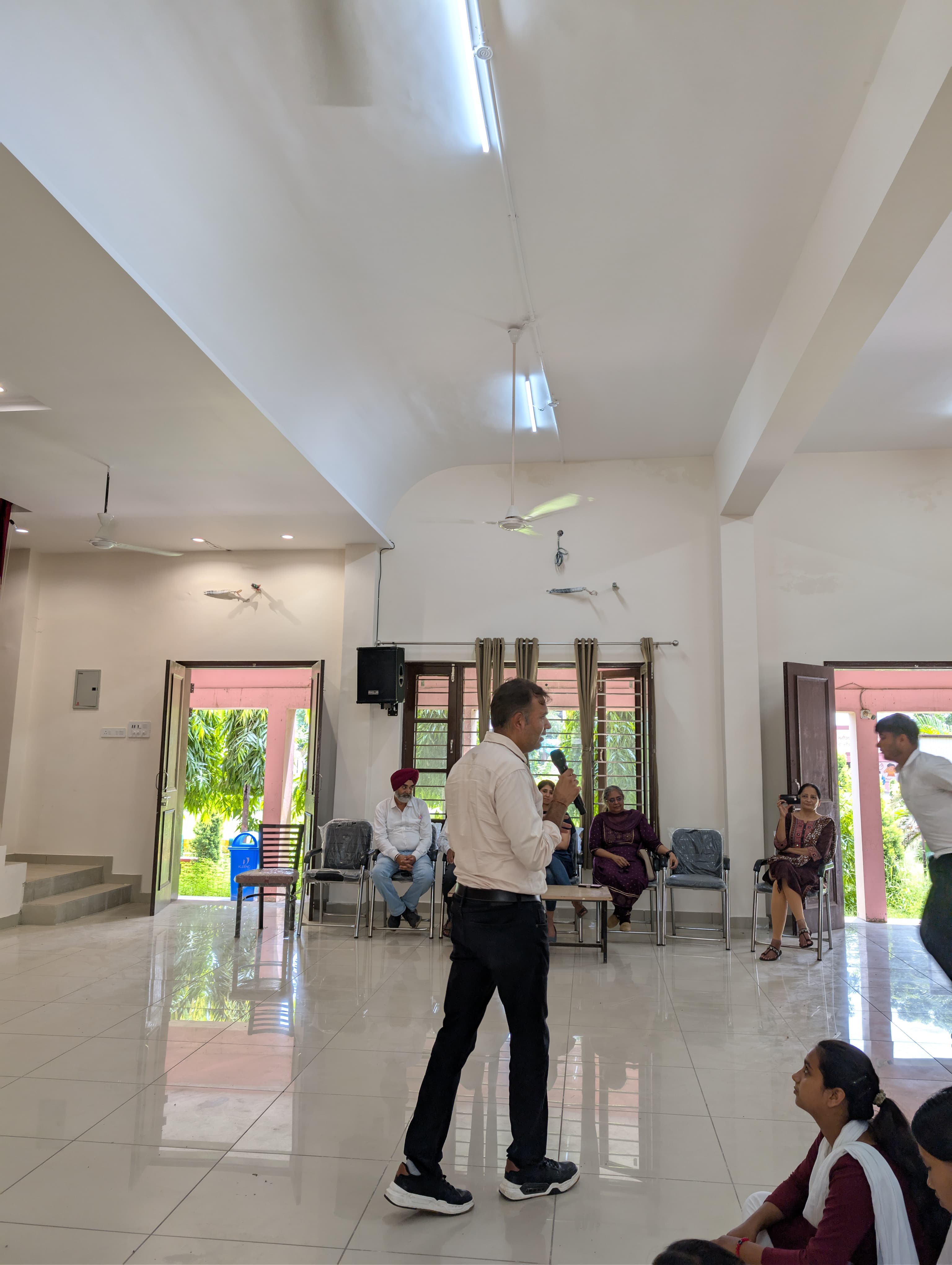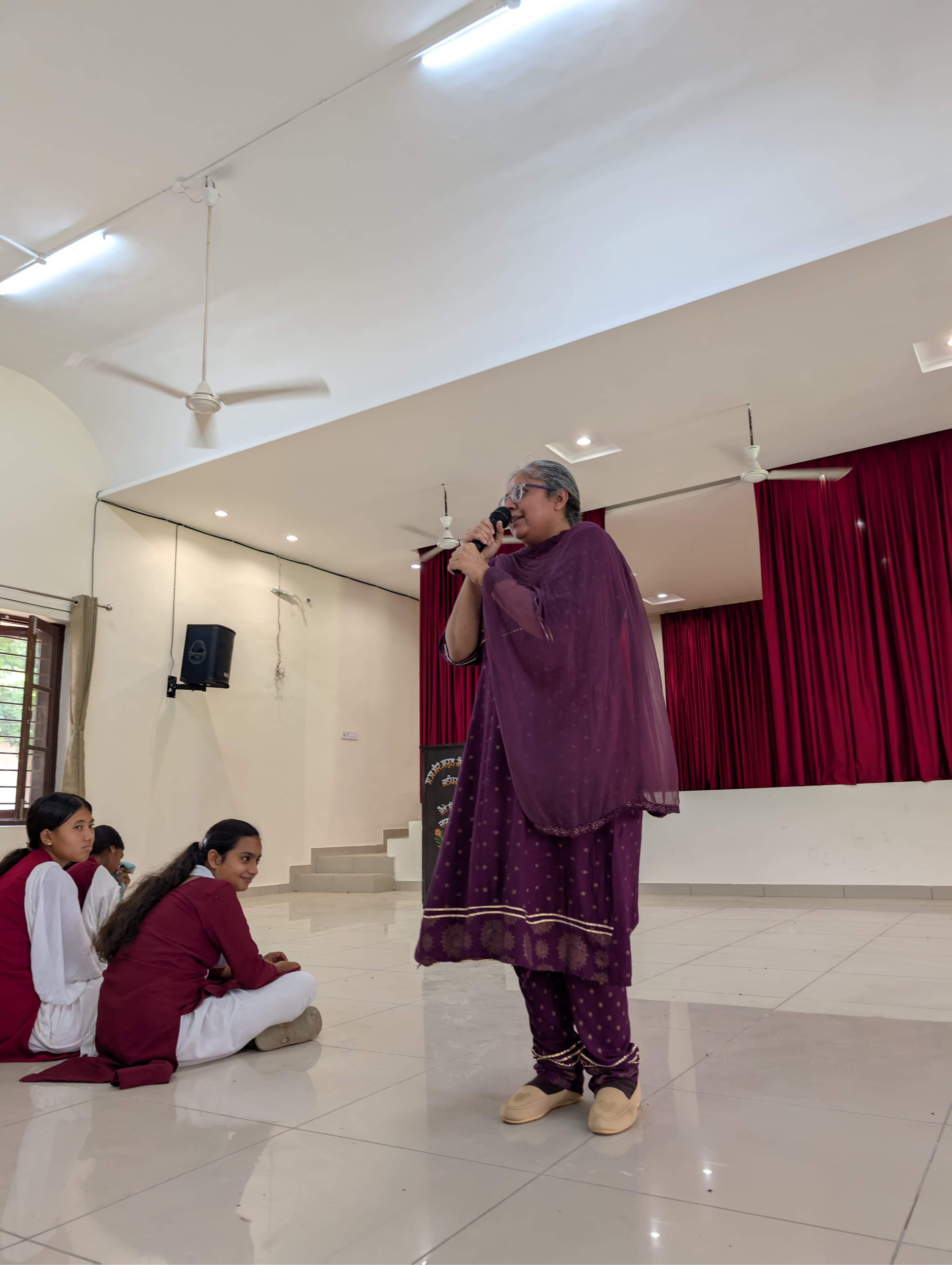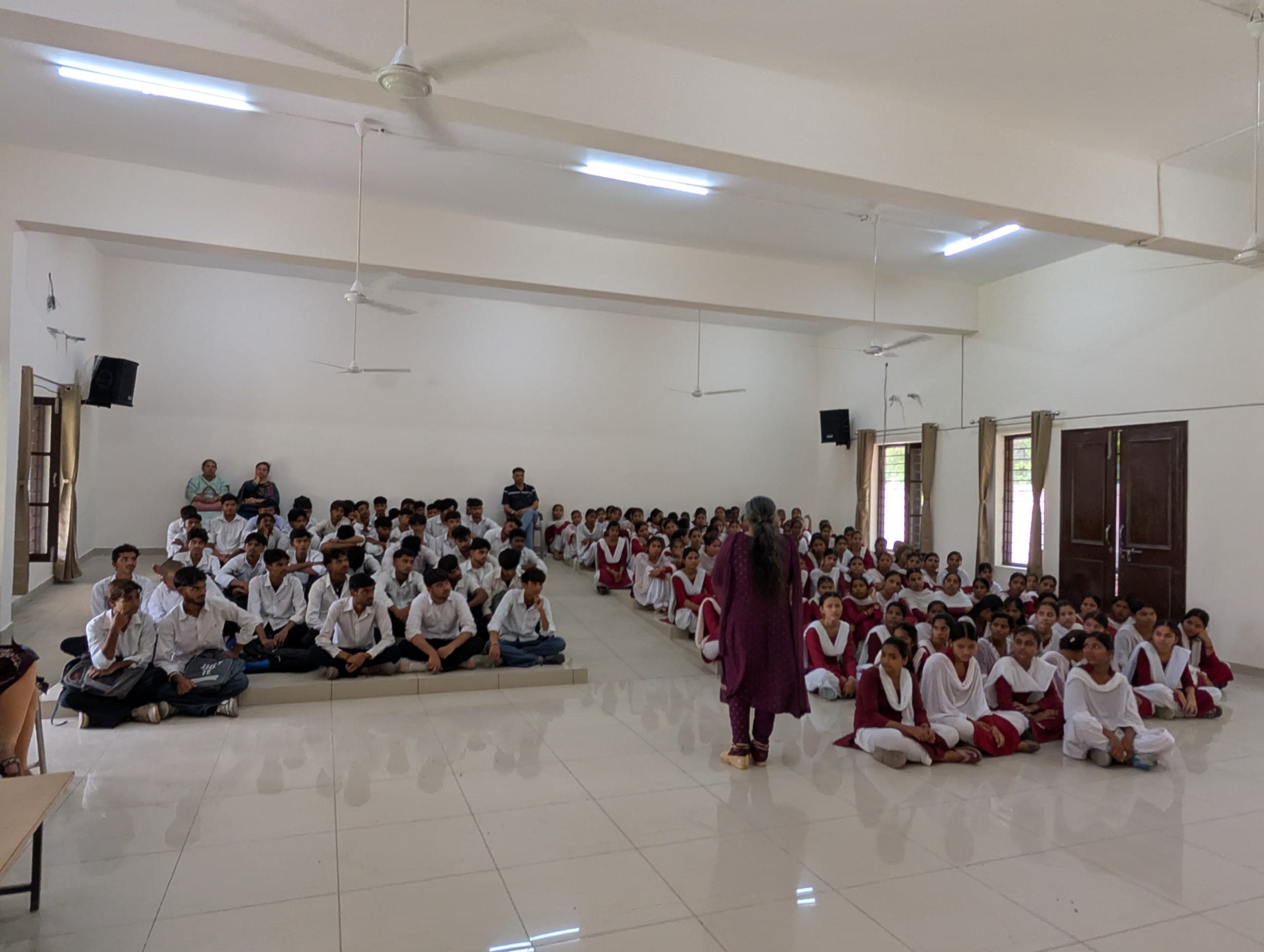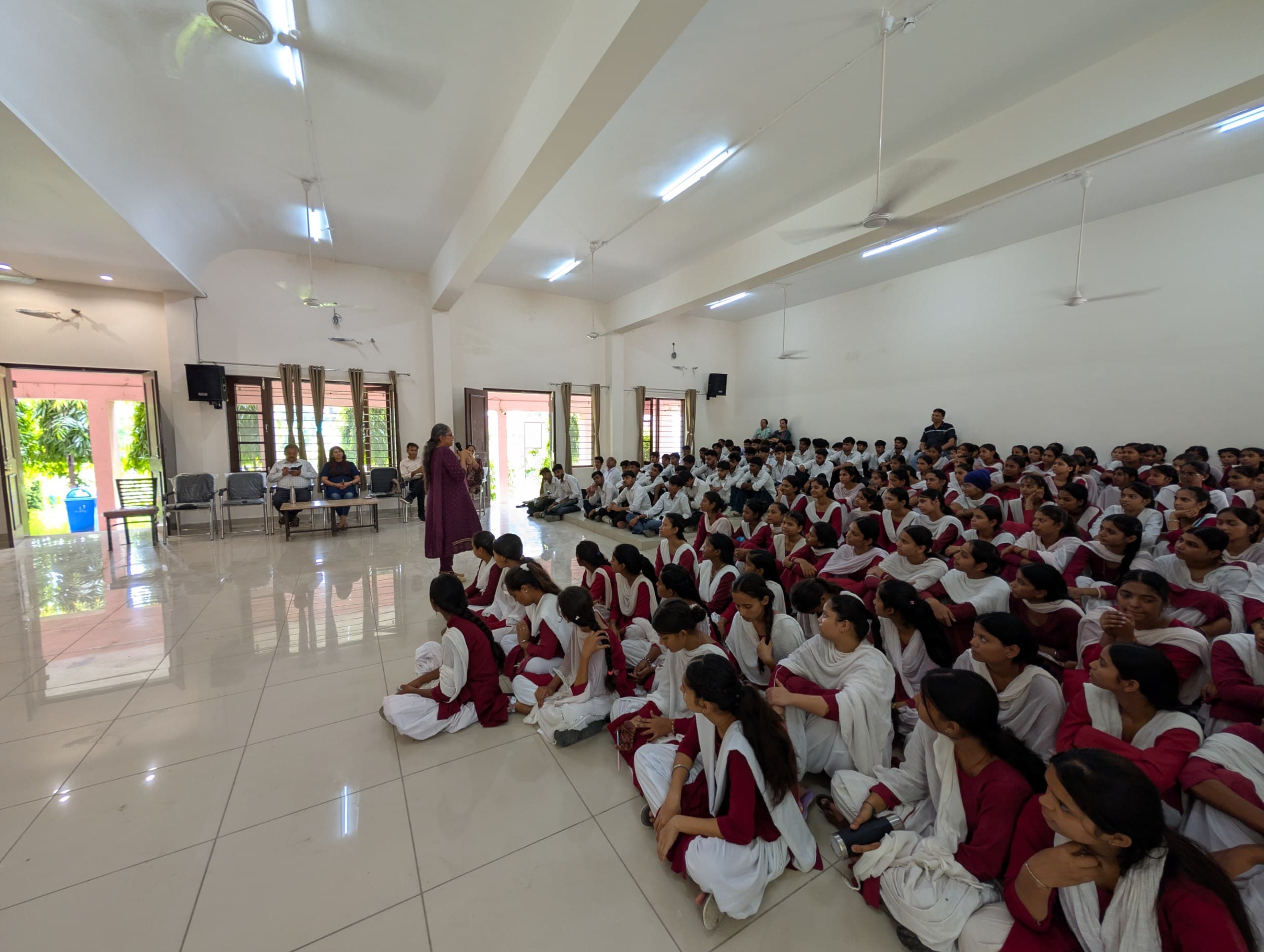DAV University Launches Punjab's First Public Health Club in Collaboration with University of Memphis, PSCST and DST, GOI.
Jalandhar, August 4, 2025 – In a landmark initiative aimed at fostering health awareness among school students and local communities, DAV University, in collaboration with the School of Public Health, University of Memphis (USA), launched Punjab’s first Public Health Club at Government Smart Senior Secondary School, Randhawa Masanda, Jalandhar. This visionary project, titled “Establishment of Public Health Clubs in Schools of Jalandhar,” is being generously funded by the Punjab State Council for Science and Technology (PSCST) and the Department of Science and Technology (DST), Government of India.
The launch ceremony commenced with an address by the Principal Investigator of the project, Dr. Tejinder Kaur, who engaged the senior students in an insightful discussion on the purpose and significance of public health clubs. She emphasized that the selected student members of these clubs will serve as Health Ambassadors who will lead by example and disseminate vital health information among their peers and in their communities. She highlighted that these ambassadors will be sensitized on issues like lifestyle diseases, environmental health, and health technology, and will contribute actively to community upliftment. Dr. Tejinder also took the opportunity to express her sincere gratitude to Dr. Ashish Joshi, School of Public Health, University of Memphis, USA, for conceptualizing this project and mentoring the students, thereby fostering international collaboration in strengthening grassroots public health awareness.
The event featured an inspiring talk by Dr. Harpreet Walia, Assistant Professor of Botany and Environmental Sciences, who spoke about the profound connection between environmental sustainability and public health. She introduced students to the globally relevant concept of “One Planet, One Health, One Future,” explaining how human health cannot be isolated from the health of the environment and biodiversity. She urged students to recognize the impact of pollution, deforestation, and unsustainable lifestyles on their well-being and motivated them to become environmental stewards as well as health leaders.
Following this, Dr. Sanjeev Sharma, Associate Professor in the Department of Computer Science Applications, delivered an engaging session on the growing role of Artificial Intelligence (AI) in healthcare. He introduced the students to several cutting-edge applications of AI that are being used to monitor health, detect diseases at early stages, and assist in public health surveillance. Dr. Sharma emphasized that technology, when combined with awareness, can revolutionize the way communities approach health and disease prevention, especially in rural and resource-limited settings.
Mr. Deepak Jindal, Lecturer in Chemistry at the host school, also addressed the students with a thought-provoking discussion on the rising prevalence of lifestyle diseases, particularly hypertension. He explained the causes, symptoms, and long-term implications of unmanaged blood pressure and related disorders. Stressing the importance of preventive measures, he encouraged students to adopt healthy habits such as regular physical activity, balanced nutrition, and mental wellness practices from an early age.
At the conclusion of the event, 16 students were selected as the founding members of the Public Health Club. These students will volunteer to spearhead health-related initiatives both within their school and in their respective communities, helping bridge the gap between knowledge and practice in rural public health.
Dr. Tejinder Kaur extended heartfelt thanks to the Punjab State Council for Science and Technology and the Department of Science and Technology, Government of India, for their unwavering support and generous funding of the project. She also acknowledged the cooperation of the District Education Officer and the Directorate of Public Instruction (DPI), Punjab, whose facilitation has made it possible to initiate the formation of public health clubs across the state.
This pioneering project sets a precedent for community-oriented health education in schools and reflects a significant step toward nurturing informed, responsible, and empowered youth who can champion health in their communities.
